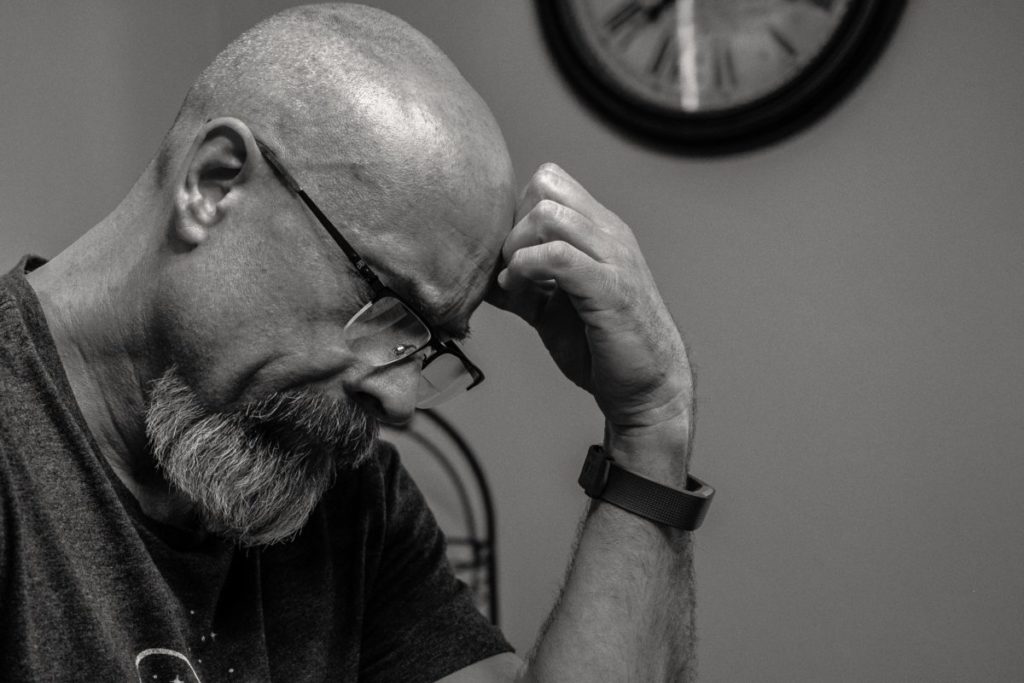What should you do when you relapse? Relapse is reality for many in recovery. But relapse doesn’t mean your recovery is completely thrown away. In this resource, we explore tips and how to plan to avoid another relapse in the future.
Searching for help with drug and/or alcohol addiction? Call us now at (888) 583-3480.
The Truth About Relapse
Like it or not, relapse is part of recovery. Roughly 40-60% of people with substance use disorders will relapse1 throughout their progress. This is similar to rates of returning symptoms for people with hypertension and asthma.
While it may feel like a personal failure, relapse is simply a resurgence of the symptoms of a chronic illness, indicating that you need to increase or change the treatment you receive.
You wouldn’t tell a patient with high blood pressure that they’ve failed if their vitals spike, so don’t let yourself think that you’ve failed, either.
Like any other chronic illness, relapse is a sign that must be carefully observed and used to change the course of your approach. If you learn from relapse, consult with a trusted professional, and take action to protect yourself in the future, there’s nothing to be ashamed of.
1. Seek professional help: This is probably the most important step you can take. A professional can help you understand your addiction and develop a plan to overcome it.
2. Avoid triggers: As much as possible, try to avoid anything that may trigger a relapse. This may mean avoiding certain people, places, or activities.
3. Stay busy: Idleness is often a trigger for relapse, so it’s important to stay busy. Find a hobby or activity that you enjoy, and make sure to keep yourself occupied.
4. Be honest with yourself: Be honest about your relapse risk, and don’t hesitate to ask for help when needed. Trying to go it alone is often a recipe for disaster.
5. Take it one day at a time: Recovery is a journey, not a destination. Take things one day at a time and celebrate each victory, no matter how small.
Quick Tips for Relapse in Recovery
Hold Yourself Accountable
Imperative to your success in recovery is your ability, to be honest with yourself about relapse and other slip-ups as they occur. The old you may have treated relapse like a fluke, a temporary lapse of judgment brought on by extenuating circumstances that bear no significance upon your overall progression towards self-improvement. Everyone makes mistakes, you might say. While it’s true that everyone makes mistakes, the way we get better is by learning from them. Tell yourself, your sponsor, or whomever you trust to hold you accountable: “I relapsed.” Putting it out in the open gives you and your caregivers an accurate understanding of your situation and allows you to work together to begin overcoming it right away. No matter how little you consumed or how unusual the circumstances leading up to it were, you must be honest with yourself about what it means for your attitude toward your recovery. Addictive behavior doesn’t appear in a vacuum. If your mental and emotional state allows you to reach this point, you must take a critical look at how well-equipped you feel in your current approach to recovery and should consider changing an aspect of your care or plan immediately. Otherwise, the same conditions can quickly grow into much more serious mistakes.Have a Prevention Plan
Even if you aren’t worried about slipping up right now, it can make a huge difference in your ability to bounce back if you form a plan to follow in case of relapse. Work with the guidance of someone you trust, either a family member or professional, to form a step-by-step action plan. Research shows that the risk of relapse is lower2 if you have the proper support. This plan can include checking in to a specific treatment center, calling a friend who’s prepared to come to be with you or move you to a safer location, providing instructions for someone to help you call out of work, having someone to feed your pets and anything else you may need taken care of while you’re focused on addressing the matter at hand.Learn From Yourself
Modern understanding of relapse points to the idea that it occurs not all at once but in stages that gradually lead up to the final act of returning to drinking or drug use. If you’re on the other side of a relapse, pay close attention to the factors that led up to it.
Both external factors, like going to a party you thought would be safe or having an especially stressful day with no one available to help you relax afterward, and internal factors, like slowly building up resentment towards the lack of relief you once had through your old habits, can lead to relapse.
Take note of your external factors and your internal state in the hours, days, and weeks leading up to relapse so you can figure out which parts of your life need adjustment and which emotions might need new release forms.
Reach Out for Help Immediately
While relapse is a normal part of recovery that shouldn’t cause you to feel shame or self-disgust, it is still a dangerous situation that must be handled with proper precautions.
Relapse is a leading cause of overdose and drug-related deaths. This is because your body’s tolerance can drop rapidly after a period of sobriety, which means that relapsing with the same amount of a substance you were used to using can have unexpected, disastrous consequences.
If you think you might be seeing warning signs, if you’ve found yourself struggling to stay on track mentally, or if you’ve already relapsed, reach out for professional help.
Research has shown3 that professional addiction treatment can improve your chances of avoiding relapse over a 16-year timeframe. Don’t let feelings of guilt, shame, or weakness prevent you from protecting yourself.
You can address your self-perception once you’re physically safe and back on the path toward healing; you’re investing in your ultimate wellbeing right now. As with many other areas of recovery and in life, it isn’t about how many times you get knocked down–it’s about how many times you get back up.
Any recovery professional will tell you that relapse is not a failure or a sign that you’re unfit to improve; it’s simply an indication that you need to change your tactics. Honesty is your ally, so don’t let shame or self-doubt hold you back as you continue to work on yourself.
At Cornerstone Healing Center in Scottsdale, Arizona, we know that recovery is a process, not an on/off switch and that the possibility of relapse is as real for you in your tenth year of sobriety as it is in your tenth minute.
That’s why we offer comprehensive, individualized support for every aspect of your self-improvement, from the medical to the personal, to help you build a new life that minimizes your chances of relapse and maximizes the guidance at your fingertips for the moments of greatest challenge. Call (888) 583-3480 to learn more.





